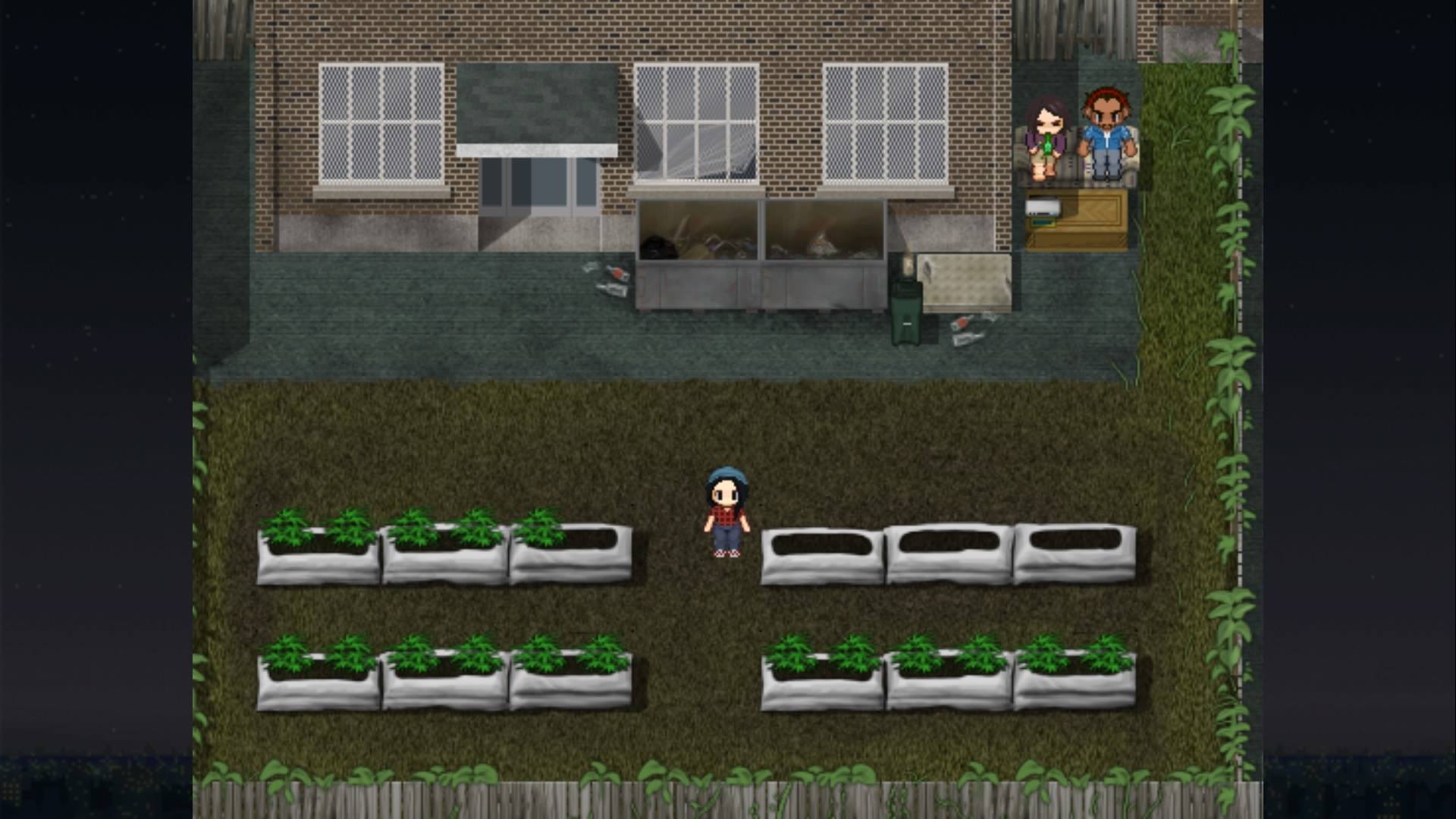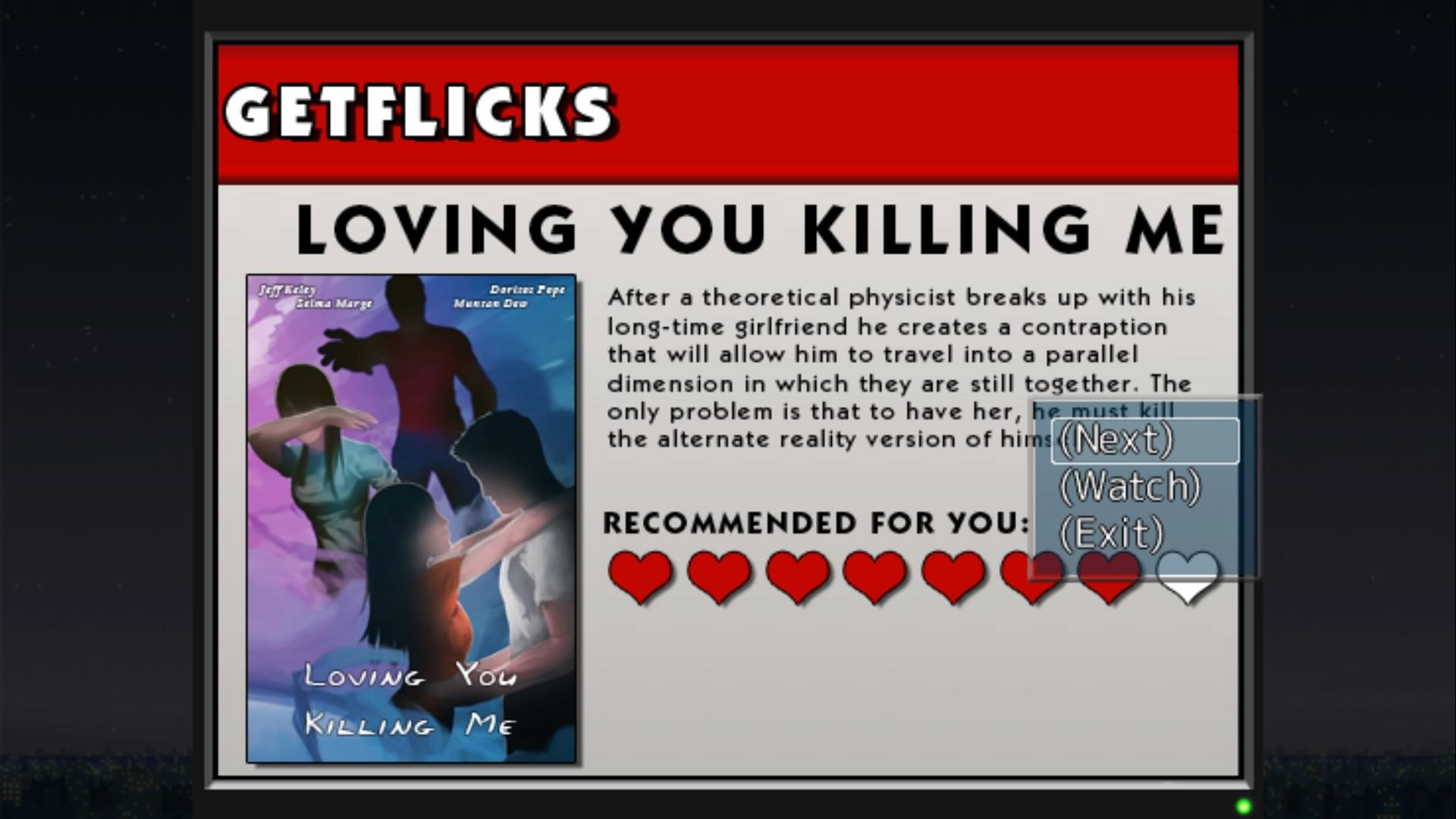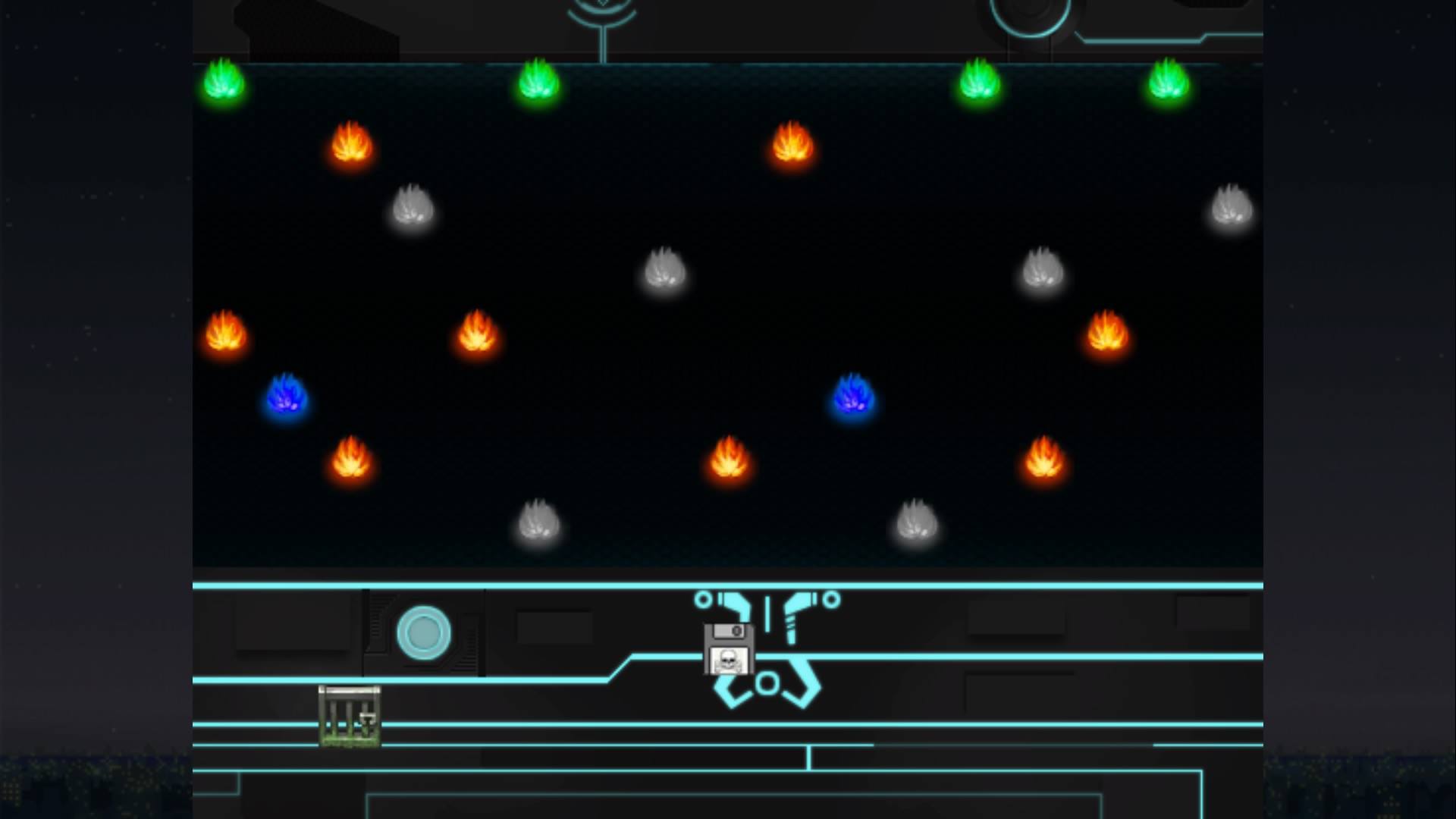Platforms:
PC, , , iOS, Android,
Released:
October 10, 2017
Publisher:
Devolver Digital
Developer:
Vagabond Dog
Games like Always Sometimes Monsters are designed to make you think, ponder, and reflect. The game focuses on choices, consequences, and is ambiguous about whether the decisions you make matter in the end. Some questions I asked myself while playing through Always Sometimes Monsters were: am I good person? Would I do this if it were real? Do I really need to keep going? When will it end? Indeed, a large portion of the game had me struggling to continue or see the point in carrying on.
Always Sometimes Monsters is not a happy game. It will not make you feel good in the end. It will beat you down, punish your decisions, and greet you with hostility at almost every turn. I tried my darnedest to stay engaged through the game, to make good decisions, to guide my character (who I named Belle) to happiness, yet nothing I did would yield any positive outcome or joy in the experience.
The game opens with a mobster and his boss arguing over his resignation from the mob. The boss states he has no choice but to obey him, while the mobster says his choices are his own. They are interrupted by a nearby homeless person, who monologues about the notion of choice. The boss orders his henchman to kill him, to which the homeless man offers a story in place of his life: YOUR story.
A creative and engaging character selection process follows, with the player selecting their character from a group of pre-made folks at a party. The overarching narrative is then introduced: your character is an up-and-coming writer who is getting picked for a book deal, with a large sum of money being offered on completion of the book. The main cast of Always Sometimes Monsters is introduced, including your love interest, friends, and publisher, who serve as the backbone of the game’s story.

It doesn’t take long for things to go badly. Before you know it, you are out on the street with no job, no partner, no book deal, and seemingly no hope. I will try to avoid spoilers as much as I can, but receiving a wedding invitation in the mail kickstarts your adventure cross-country and the need to make some cash sets in.
This begins a very monotonous rinse-and-repeat segment where you go to different temp jobs to earn money to make your way to the wedding. You have 30 in-game days to get there, and 3 towns to travel between on the way. Below are some screenshots of the various jobs you can do, including a meat grinder, community gardener, box packer, and weed picker.
These repetitive jobs are the main means of earning money, and the primary source of gameplay for the first few hours. Along the way there are mini-games and other distractions you can engage in such as game arcades, fishing, movie theaters, and gambling on lottery tickets. Whilst these are a welcome distraction from chopping up pigs and picking marijuana, they provide no real substance to the game and serve little purpose other than a break from pressing X over and over again.
Add to this the fact that the game constantly crashed, froze, and lost progress on me, and the repetitive structure of make money, spend money, sleep, repeat – it made the first few hours of Always Sometimes Monsters a real slog. At times, the line between RPG and money-management sim were blurred, and led to me actually forgetting why I was performing these menial tasks in the first place.
Every now and then, an NPC would come into Belle’s life with a task to perform. Most of these led to making some hard and ethically horrendous choices, none of which I can state without spoiling the narrative. Rest assured, almost no character in Always Sometimes Monsters is a “good guy”; every character encountered is selfish, abusive, and just downright rude to your character.
“Your choices may have different outcomes, but if every outcome is a negative then what’s the point?”
Saying ‘the right thing’ or making the ‘good choice’ never leads to a good outcome. Your choices may have different outcomes, but if every outcome is a negative then what’s the point? While I know there were other paths I could have chosen, knowing that almost all of them would lead to a bad outcome totally killed my desire to ever go back and make another choice.
The game places a major focus on questioning the impact of choice, and whether life is random or predetermined. It is a huge philosophical question for such a game to ask, and in my opinion fails to challenge any real thinking and instead becomes too meta in the process. An example of this is the inclusion of the game’s creators, Justin Amirkhani and Jake Reardon, as NPCs in the game. Situated in the game’s various coffee shops, you can speak to them and they will provide almost-fourth-wall-breaking commentary on the game; as if they are god figures predetermining your moves and decisions. While I can appreciate what they were going for, to me it fell flat.
“I ended up just mashing X to get through it all, like a mosquito you keep swatting but just won’t leave.”
Additional to this, the game spends a LOT of time spitting through dialogue about how your choices are hopeless, being a good person means nothing, everything is random, chaos will always win, and so on and so forth. It became this recurring blur on the screen that I ended up just mashing X to get through it all, like a mosquito you keep swatting but just won’t leave.
This led to another issue: the conversation mechanics and design. Too often I would be pressing X through a conversation, when suddenly a dialogue box would appear and, without pressing anything, a decision was made for me. My assumption is the game is tracking each X I press, and as I am mashing my way through the monotony I have hit it one too many times and the game has registered it as a choice, leading me to saying something I definitely didn’t intend to or agreeing to something I definitely didn’t want to do. Image below definitely related.
Not all is bad in Always Sometimes Monsters, though, despite what I’ve said so far. The game’s soundtrack is excellent, consisting of groovy synth tunes that go hand-in-hand with the game’s nostalgic art-style. Some of the tongue in cheek references to real-world things (Nontendo Pocket Pal and Get Flicks being some of my favourites) and cheeky puns and sexual innuendo had me chuckling to myself and definitely combated the negative aura the game provides.
The story, whilst spread too thin, has some really engaging plots and nuances that I appreciated. Heartwarming moments such as a flashback to a romantic night watching the stars, a deadly drag race to win back your ride, and a tense political sabotage mission made for some great storytelling.
The game, thankfully, resolves well in a very engaging and entertaining last act. The consequences of your choices throughout the game manifest themselves, and lead to a strong conclusion that almost made the struggle to get there worth it. There are said to be many ways the game can end, and hopefully you will have a different experience than I did. If the game truly has many endings, then I wonder if I went back and played differently, whether things wouldn’t have seemed so hopeless and depressing.
Positive:
- When the story hits, it hits hard
- Choices feel weighted
- Creative character selection process
Negative:
- Plot is spread too thin
- Repetitive money-making jobs pad out the engagement
- Everything is negative, all the time
Indie developer Vagabond Dog and edgy publisher Devolver Digital have put together a visually charming, audibly impressive, but otherwise unfulfilling little title that I doubt I would return to. The 9 hour journey from beginning to end is a tumultuous one, filled with depressive tendencies, impossible choices, monotonous repetition, and nary a decent character in sight. While the story was engaging, the beats were spread thin across the game, with little substance between to keep me engaged. Thankfully your hard work is rewarded with an entertaining ending that varied depending on your choices. But with all choices seemingly leading to negative outcomes, it didn’t leave me wanting to revisit and improve.

















